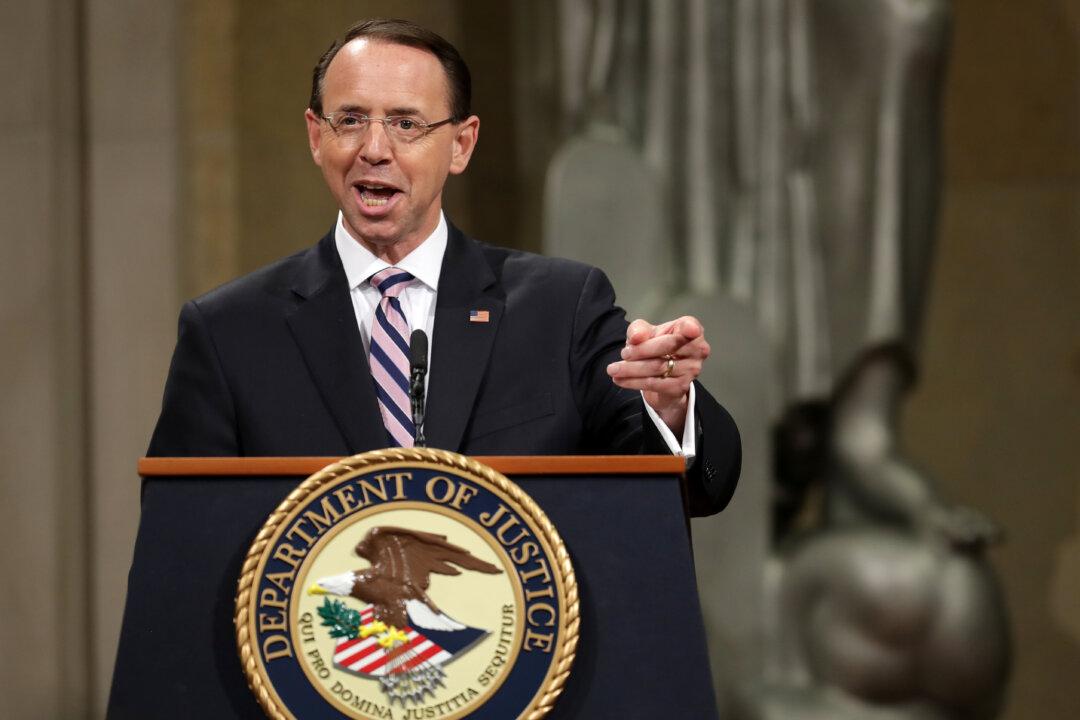Former Deputy Attorney General Rod Rosenstein authorized the Justice Department (DOJ) to release text messages between former FBI officials Peter Strzok and Lisa Page, according to a sworn statement by Rosenstein in a Jan. 17 court filing.
Rosenstein made the revelation in a declaration filed with the government’s latest arguments (pdf) in a lawsuit brought by Strzok. The former FBI deputy assistant director is suing the DOJ, claiming he was wrongfully fired and had his Privacy Act rights violated by the release of the texts. Page has filed a separate lawsuit against the DOJ that alleges Privacy Act violations.





